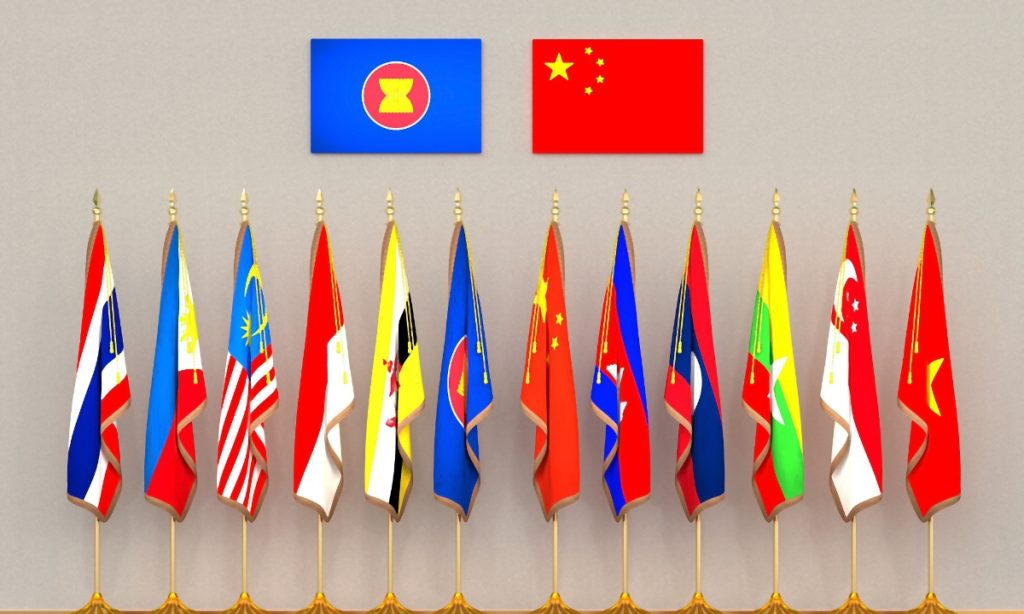China, ASEAN to ramp up partnership in digitalization, green transition; China-ASEAN Expo to be held in Nanning city

China and ASEAN will eye more practical cooperation in digital technology and green economy, Chinese officials said on Wednesday, as the upcoming China-ASEAN Expo will add a new strategic theme, focusing on the development of new quality productive forces.
The expo is expected to shed light on the latest technological developments in digitalization, low-carbon transition, new energy and smarter internet-connected auto vehicles.
Vice Minister of Commerce Li Fei told a press conference that this year's expo, to be held in Nanning, South China's Guangxi Zhuang Autonomous Region, from September 24 to 28, will showcase the latest achievements covering China's cooperation with ASEAN, focusing on promoting the construction of Version 3.0 of China-ASEAN Free Trade Area and their high-quality growth.
Li said that the expo will set up a high-tech products exhibition area from ASEAN countries, to display high-tech achievements from Singapore, Malaysia, Thailand, Vietnam, Indonesia, Cambodia and more, covering health, biomedicine, new energy and IT services, in order to support ASEAN's high-tech enterprises to explore new market shares in China and beyond.
"Both China and ASEAN are facing challenges relating to environmental protection and sustainable development, and there is extensive room for cooperation between the two sides in green infrastructure, green energy and green transport," Wang Peng, an associate research fellow at the Beijing Academy of Social Sciences, told the Global Times on Wednesday.
Moreover, there is huge potential for cooperation between the two sides in areas such as e-commerce, artificial intelligence, big data and smart cities, Wang said, noting that China's digital economy is among the world's largest, with the world's leading 5G network and a wealth of application scenarios.
"As an important platform for economic and trade cooperation between China and ASEAN, the expo has played an important role in promoting further cooperation between the two sides in emerging areas," Wang noted.
Li said that it will be the first time to invite some Gulf countries to participate in this year's exhibition, with the United Arab Emirates as a special partner to organize buyer groups to participate in the expo.
For the first time, the Shanghai Cooperation Organisation (SCO) countries will be invited to participate in the fair, and some products from Kazakhstan and other SCO countries will be displayed. Australia, Japan and other RCEP members and the enterprises from Poland, Serbia and other Belt and Road partner countries will also participate in the exhibition, Li said.
China will support the expansion of trade with ASEAN in agricultural products and manufactured goods, and ramp up imports of products with specialties from ASEAN countries, Li noted.
The expo has gone through 20 years of development, and witnessed the rapid development of China's close partnership with ASEAN, Li said.
Since 2013, China's trade with ASEAN has grown at an average annual rate of 7.5 percent. China has remained ASEAN's top trading partner for 15 consecutive years, and ASEAN has been China's top trading partner for four consecutive years.
China's bilateral trade with Vietnam, Malaysia, Indonesia, Thailand, Singapore, and other ASEAN members have all exceeded $100 billion. From January to July this year, China-ASEAN trade volume reached $552 billion, an increase of 7.7 percent year-on-year, accounting for 15.8 percent of the country's total foreign trade in the period.
In the first seven months, China's direct investment in ASEAN amounted to $12.96 billion, a year-on-year increase of 15.3 percent; ASEAN's direct investment in China reached $7.3 billion, up 14.1 percent.
With the implementation of RCEP and the accelerated negotiations on Version 3.0 of the ASEAN-China Free Trade Area, the level of regional trade and investment liberalization and facilitation has seen marked improvement, Li said.
"The constantly strengthening partnership between China and ASEAN will help shore up regional stability and prosperity, while create a more favorable environment for furthering cooperation," Wang noted.